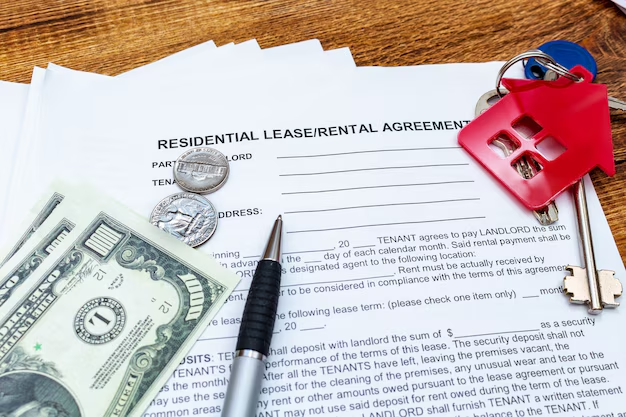Understanding Apartment Leases: What You Need to Know
Navigating the world of renting can sometimes feel like deciphering a new language, especially when terms like "apartment lease" come into play. An apartment lease is a legally binding contract between a landlord and a tenant that outlines the rental agreement for a specific property. While it may sound straightforward, a lease encompasses more than just the exchange of keys for rent. It establishes the rules for the rental period, adjusts rights and responsibilities, and influences protection for both parties. For anyone stepping into the rental market, understanding the nuances of a lease is crucial.
Key Elements of an Apartment Lease
Rental Period and Terms: The lease specifies the duration of tenancy. It could be a fixed-term lease, often lasting a year, or a month-to-month agreement offering more flexibility. This duration agreement impacts everything from the landlord's ability to increase rent to the tenant's requirement for notice before moving out.
Rent and Deposits: A lease clearly indicates the rent amount, the due date each month, and any applicable late fees. In addition, it covers details about security deposits, which are usually required upfront and refundable upon moving out, provided there are no damages.
Tenant and Landlord Obligations: The lease breaks down what is required of both parties. Tenants typically must keep the premises clean and report any repair needs, while landlords are responsible for providing a habitable environment and carrying out necessary maintenance.
Rules and Regulations: This section of your lease will talk about the "Do's and Don’ts," covering everything from pet policies to subletting restrictions and noise regulations. Violating these terms can lead to penalties or even eviction.
Understanding your lease can prevent future disputes and enhance your renting experience, but sometimes financial strain can make maintaining lease obligations challenging.
Exploring Financial and Educational Resources
If you find yourself struggling to meet the terms outlined in your lease, rest assured that there are several options to consider. Renters should be aware of available financial assistance and educational opportunities, especially in challenging times.
Government Aid Programs: Numerous programs, such as the Emergency Rental Assistance Program (ERAP), provide financial support to renters who face difficulties due to unforeseen circumstances. These programs can assist with both overdue rent and future payments, helping you stay aligned with your lease agreements.
Debt Relief Options: If you are burdened by debt, ensuring you meet other financial obligations can become difficult. Debt relief programs or credit counseling services can offer structured ways to manage and lower debt, freeing up some income to better manage rental responsibilities.
Credit Card Solutions: Using credit resources wisely can sometimes provide short-term relief. Balance transfer cards or cards offering favorable interest terms can be useful, but should be approached with caution to avoid increasing long-term debt.
Educational Grants: Redirecting focus towards further education can not only enhance career opportunities but also provide temporary relief through educational grants and scholarships. These can reduce financial pressures, allowing you to continue fulfilling lease commitments.
Apartment leases may seem complex, but with careful consideration and a proactive approach to financial management, you can prevent potential disputes and enjoy a stable living situation. Below is a concise list of resources that can provide that much-needed support.
Resources for Renters
- 📑 Emergency Rental Assistance Programs (ERAP): Offers financial support for rent payments.
- 💳 Debt Relief Programs: Helps manage and reduce existing debts.
- 🏦 Credit Counseling Services: Provides guidance on managing credit card debt.
- 💼 Balance Transfer Credit Cards: For short-term financial reprieve.
- 🎓 Educational Grants and Scholarships: Offers financial support while pursuing higher education.
Remember, understanding your apartment lease is the first step to a secure rental experience, and making the most of available resources can significantly contribute to financial well-being.

